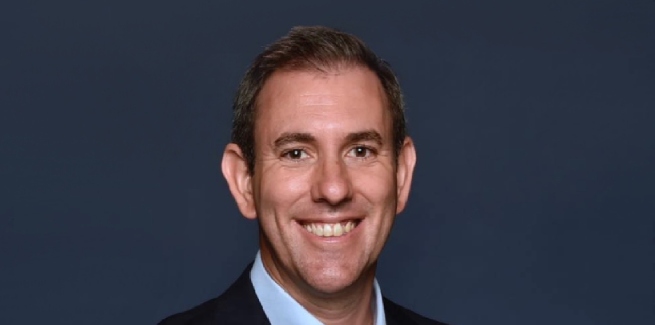Treasurer says inflation will put pressure on October budget
 ;
;
The Treasurer, Jim Chalmers, has said cost-of-living solutions will be a key focus in Labor’s first budget.
Treasurer Jim Chalmers has confirmed that Labor expects to deliver its first budget “on or around” Tuesday, October 25, dependent on the parliamentary sitting schedule.
Speaking at the inaugural Australia’s Economic Outlook event on Wednesday (8 June), Mr Chalmers acknowledged that the country was facing major challenges in the lead-up to the budget including higher petrol prices, wholesale electricity prices and east coast gas prices.
“All of this will flow through to the budget,” said Mr Chalmers.
“It will put significant pressure on a budget which already has its share of difficulties including a relatively significant structural deficit and now with those higher borrowing costs as well.”
He reiterated Labor’s plan to go through the previous budget “line-by-line” in an effort to redirect spending towards what he described as more productive purposes.
“It’s an observable fact that when the government changed hands a few weeks ago, it was at a time of high and rising inflation and rising interest rates, falling real wages and with around $1 trillion of debt in the budget,” Mr Chalmers said.
Echoing the views of the Reserve Bank and Treasury, the Treasurer said he expected inflation to rise significantly higher than the 5.1 per cent increase seen during the March quarter.
“Inflation, in my way of thinking, is really the defining challenge that we have in the economy because of its impacts on living standards and real wages, its impact on the economic outlook, and also the impact that it has on the costs of servicing... the debt in the budget,” he said.
When asked about exactly how high he expects inflation could go, Mr Chalmers declined to specify but said it was “almost universally agreed” that it would likely be above 6 per cent.
He committed to providing an update to the government’s inflation forecasts when Parliament resumes at the end of next month.
“We’ve got a choice when we think about these challenges in our economy. We can kind of tiptoe around them, we can try and pretend them away, but my style and my preference is to be pretty blunt about them,” Mr Chalmers noted.
With the Reserve Bank now set to deliver a series of major interest rate hikes, the Treasurer warned that higher rates will somewhat dampen activity in the economy.
“They will impact house prices and savings, but they’ll also have a disproportionate impact on people on the lowest incomes, people who haven’t been able to build up those buffers in their own personal finances,” he said.
The Treasurer had also told the ABC Afternoon Briefing last week that “just because this [rate hike] was expected...it doesn’t make it any easier for homeowners who have to find that extra money to service their mortgage at the same time as they’re facing those skyrocketing costs of living, whether it be energy prices, grocery prices, or other inflationary pressures in the economy.”
He told the ABC: “It is a really difficult day, especially for those homeowners who might have an especially big mortgage or for those who might not have built up the buffer that others have been able to do. So a difficult day and a real reminder and a real reflection of this serious inflation challenge that we have in the economy.
“[T]his inflation challenge looks more difficult than the Government said at the time of the last budget. We’ve got high and rising inflation, rising interest rates, falling real wages and our ability to deal with some of these challenges is constrained by the fact that the budget is absolutely heaving with that trillion dollars of Liberal debt. So those are the challenges before us. We’ve got some things going for us at the same time but we’ve got some pretty serious choppy water to navigate first.”
However, while speaking at Australia’s Economic Outlook event, he also pointed to some of the positives of the current situation.
“We’ve got a tight labour market, we’ve got relatively strong demand, we’ve got good commodity prices, some households have got buffers when it comes to their home loans. But even as the economy grows, the challenges to our economy are growing as well,” he said.
Overall, Mr Chalmers said that there was cause for confidence in the medium and long term, but warned that the existing inflation challenge would get worse before it gets better.
“I genuinely think that Australia has a really big opportunity here to have a stronger economy and a stronger society after COVID-19 than we had before,” he concluded.
“I really strongly believe, and I wouldn’t be here if I didn’t, that Australia can take its place, its rightful place, at the absolute first rank of national economies in the world, but first we need to navigate together these choppy waters that we are dealing with now.”
[Related: Treasurer ‘keen’ to commence RBA review]